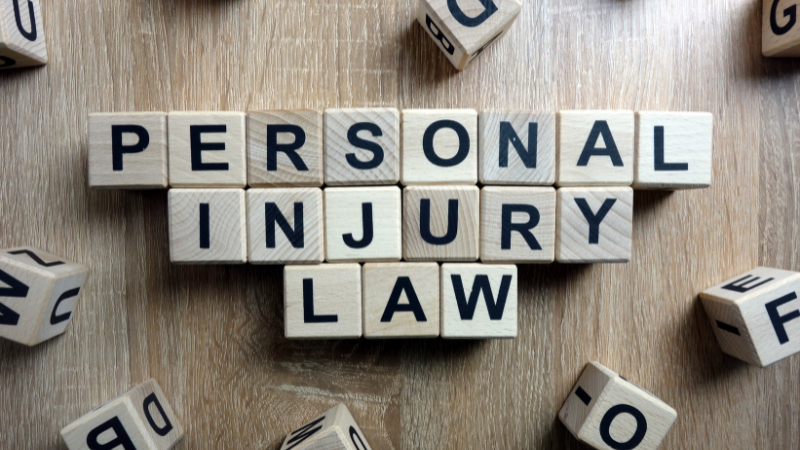Standing out in the personal injury legal market isn’t just a challenge—it’s a necessity.
With local search results dominated by large advertisers, social media feeds filled with competitive offers, and AI-driven search tools recommending only the most authoritative answers, the pressure on personal injury law firms to differentiate has never been higher.
Success today requires a digital marketing strategy built for conversion, not just clicks—one that earns attention, builds trust fast, and converts searchers into consultations.
Schedule a Discovery Session
Learn how to attract new leads and clients.
The challenge: Competing in a saturated legal landscape
Personal injury law is one of the most competitive practice areas in the digital marketing industry.
With hundreds of firms vying for the same search terms and ad space, standing out requires more than just a modern website or basic SEO.
Success demands a unified, ROI-driven strategy that integrates:
- Search
- Content
- User experience (UX)
- Conversion-focused campaigns
To compete, firms must go beyond simply “being online.” Visibility alone isn’t enough—authority, relevance, and user experience matter more than ever.
Your online presence should mirror your courtroom performance: persuasive, credible, and tailored to the needs of your audience.
Understand the personal injury client’s journey before they call
To effectively market your firm, you need to reverse-engineer the client journey.
People searching for personal injury lawyers are often dealing with stress, pain, and uncertainty. They’re looking for trust signals, proof of competence, and a clear path to resolution.
Top strategies to meet their expectations:
- Local SEO dominance: Claim and optimize your Google Business Profile. Layer on local schema markup (structured data that helps search engines understand your location and services).
- Case-type landing pages: Build dedicated, keyword-optimized pages for car accidents, workplace injuries, medical malpractice, and more.
- Testimonials and outcomes: Show real stories and verdicts with credibility-building visuals and videos.
- Mobile-first design: Ensure your site is fast, functional, and seamless for mobile users, who often comprise the majority of legal search traffic.
This helps establish emotional connection and trust, a critical driver of conversion for legal services.
Outrank competitors with high-intent SEO content
Too many firms still rely on generic blog posts or duplicate legal content from vendor platforms. This doesn’t work anymore.
Modern SEO for law firms is about creating AI-optimized, schema-structured content that aligns with how real users ask questions—and how platforms like Google, ChatGPT, and Perplexity display answers.
SEO content that converts:
- Answer-box eligible formats: Use Q&A structures and FAQs.
- Long-form guides: Build topical authority with comprehensive articles (like this one).
- Location-specific content: Target keywords like “Detroit personal injury lawyer” or “car accident attorney in Austin.”
- Practice area content hubs: Organize content around themes such as auto accidents, slip-and-fall injuries, and wrongful death to build relevance and enhance internal linking.
Effective legal SEO isn’t just about frequency—it’s about how content is structured to rank and resonate.
Invest in paid campaigns with clear ROI benchmarks
In highly competitive markets, SEO alone isn’t enough. Google Ads and Meta Ads—when properly executed—can deliver immediate case inquiries.
But here’s the catch: most campaigns are wasteful. They either target too broadly or fail to convert traffic.
What works in PPC for personal injury law:
- Keyword segmentation: Bid aggressively on bottom-funnel terms (e.g., “best personal injury lawyer near me”).
- Retargeting ads: Re-engage site visitors with testimonials, case studies, or a free consultation offer.
- Conversion-first landing pages: Strip the distractions. One page, one goal—contact the firm now.
- Call tracking and lead attribution: Track which ads drive real signed cases, not just clicks or calls.
If you’re planning to scale quickly, it’s worth looking into how performance-based PPC campaigns work, especially those that come with built-in analytics and clear cost-per-lead tracking.
Build automated email and CRM follow-ups that close the loop
Many personal injury firms lose leads simply because they don’t follow up fast enough—or at all.
An automated CRM nurture system ensures your firm stays top-of-mind, even if the potential client doesn’t sign immediately.
Effective systems include:
- Timed email/SMS follow-ups after form fills or calls
- Engagement-based triggers (e.g., “Download guide but didn’t schedule call”)
- Reactivation campaigns for aged or dormant contacts
- Personalized messaging by case type or urgency level
Improving intake workflows isn’t just about speed—it’s about having the right messages and tools in place to guide each lead toward a decision.
That’s where coordinated sales enablement content and smart CRM automation can make all the difference.
Don’t outsource piecemeal—build a performance-driven marketing system
Personal injury law firms don’t need one-off blog posts or templated websites. They need a full-stack lead generation engine that is:
- Fast to launch: Built and deployed in weeks, not quarters
- Built for conversion: Every page, form, and campaign is optimized for intake
- Integrated: From Google Ads to CRM follow-up, the funnel is seamless
- Designed to scale: With content strategies and ad frameworks that grow with your firm
Add the human layer: Brand storytelling and video proof
When every firm says they fight for justice, how do you make yours feel different?
Brand storytelling, combined with original video, builds emotional credibility and demonstrates empathy, not just expertise.
Ideas to implement:
- Attorney introduction videos that reflect your values and approach
- Client testimonials filmed in your office that highlight outcomes and trust
- “Day in the life” footage from your team showing your process and dedication
- Video case studies explaining how a past client’s problem was solved
These assets build trust more quickly than text alone and increase conversions on all platforms, from landing pages to YouTube ads.
Ready to stand out and scale your personal injury practice?
We build digital lead systems that deliver cases, not just clicks.
Tell us about your project to start planning your custom strategy.

